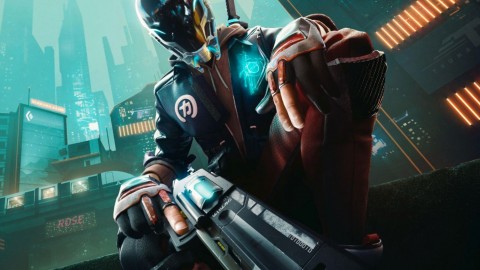
Ive been feeling very disconnected from reality lately, but thankfully, virtual reality is keeping me grounded. It doesn’t make any sense, but slipping on a plastic cowl and entering another dimension has been working wonders for my mental and physical health. Both of those spinning plates are at risk of crashing to the ground under current measures, but grafting virtual reality into my daily routine has helped me to achieve a sense of control within the mayhem.
We’re under local lockdown where I live, and I decided to cancel my gym membership months ago when the pandemic first reared its ugly head. For me, heading to the gym was more about self-care than it was about results. Being able to leave my house – also known as the office – and go somewhere for a few hours to get out of my own head was something I depended upon, so being stripped of that luxury was tricky to deal with. I had tried to replicate that feeling at home with weights and an old exercise bike, but ultimately it started to feel like another job.

The Thrill Of The Fight is a virtual reality boxing game that I’ve had in my Steam library for years. I’ve never boxed in my life, nor did I ever really have any intention to, which is why it’s such a shock that I now go three rounds every day. In spite of the frankly terrifying face models, the game pulls me into the present moment and clears my head very easily.
The haptics in the controllers give you enough force feedback so that you feel like you’re actually hitting something, therefore doling out proper punches come more naturally as you start to adapt to the in-game AI. This is a surefire way to get some frustration out and work yourself into a hefty sweat. Hell, even some professional boxers like Tamuka Mucha have started using the game in their regime. But what if you’re not looking for something so aggressive? I’m pleased to report that virtual reality has that range.
For cardio, I use a relatively new game called Stride, which I caught wind of after the electronic producer Porter Robinson started streaming it on Twitch. In the most simple terms possible, Stride is Mirror’s Edge in virtual reality, or as close as we’re going to get to it for now. You run by waving your hands by your side and have to physically pull yourself up and over platforms, running the gauntlet with a Glock in your armpit to take out goons.
The game launched into early access on September 4 and only has one endless mode at the moment, but I’ve already sunk hours into it. It’s both frantic and serene in equal measure, offering by far the best parkour mechanics I’ve ever experienced in VR, and I can’t wait for developer Joy Way to flesh it out even further.

Last week, I managed to make it into the game’s third zone and crack the Top 200 in the world, which gave me more momentary joy than most professional adult achievements. I’ve found that progressing slowly with a learned skill like a language or an instrument can be beneficial for my mental health, and it feels like Stride is giving me those same little lifts.
As well as being another great cardio workout in VR, Beat Saber has now become a processing tool for my brain. As my arms take care of the notes, my mind tends to drift and work out the worry kinks in my head, helping me achieve a sense of clarity and come up with ideas.
There’s something important about being able to actively engage with music rather than just let it flow into your ears passively. Thrashing to the beat of a song can be cathartic but also strangely emotional. The negative space of virtual reality can really coax out the resonance in the lyrics and the true power of the arrangement, I’ve found. At some point it goes beyond being good for your body and starts being good for your soul too.
But as far as VR mindfulness is concerned, I only have two words for you: Tetris Effect. I use this game to cool down after a workout, and despite the fact I must have beat it three or four times, it’s still such a powerful tool for dispatching emotion through vicious frisson.

Heralded by Tetsuya Mizuguchi of Rez and Lumines fame, Tetris Effect deals in synaesthesia; the beautiful marriage of visual stimuli with carefully crafted music courtesy of composer duo Hydelic. It’s a game that paints an exciting future for virtual reality as a tool for catharsis and healing. The game’s Journey Mode is a spiritual adventure of the senses, something I can’t recommend enough if you’ve got your hands on a headset.
The only problem with recommending virtual reality as a means of mindful escape is the costly barrier of entry. You usually need a high-end PC and an expensive head-mounted display to get in on the action. Production of entry-level devices like the Lenovo Explorer appear to have stopped, but more accessible budget options are starting to crop up. The recently-launched Oculus Quest 2 offers a tetherless window to the world of virtual reality for £299. I’m yet to make the jump to wireless VR, but I’m sure it’s even more immersive and powerful.
The post How virtual reality has become my happy place in quarantine appeared first on NME Music News, Reviews, Videos, Galleries, Tickets and Blogs | NME.COM.







